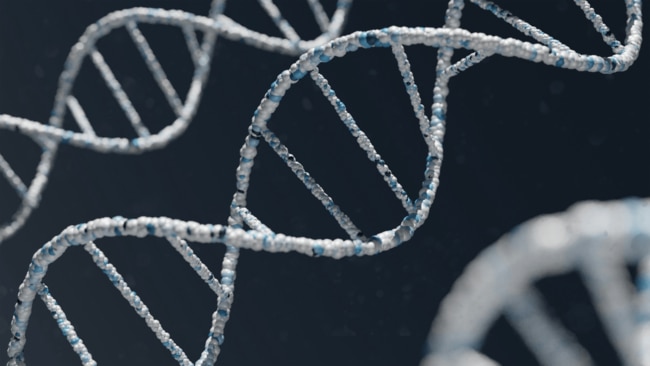Do genome-based diets actually work?
And does your DNA really hold the key to weight-loss?

Lifestyle
Don't miss out on the headlines from Lifestyle. Followed categories will be added to My News.
Can you really use your DNA as a guide for better nutrition? Accredited practising dietitian for Lite n’ Easy, Ashleigh Jones, considers the literature and weighs in.
Testing everything from your ancestry to your caffeine tolerance, direct-to-consumer DNA test kits are becoming increasingly affordable. As a result, genome-based diets, also known “DNA diets” or even “personalised nutrition”, have been an emerging trend over the last decade.
From a simple, non-invasive swab of your cheek, these tests promise to provide personalised, DNA-based diet recommendations that will optimise your health and, in some cases, your body composition.
But will following a DNA-based diet really change your life?
Most commercially available nutrigenomic tests (tests that look at genes that are involved with nutrition) for weight loss focus on genetic markers for carbohydrate and fat metabolism. Based on the presence or absence of certain genetic markers, people will be sorted into “fat-responder” or “carbohydrate-responder” categories.
In theory, fat-responders should lose more weight on a high-fat diet than a high carbohydrate, even if calories are kept the same. And conversely, carbohydrate-responders should lose more weight on a high carbohydrate diet.
However, studies show that people following DNA-based diets do not necessarily have better weight loss outcomes.

The POINTS study, published in 2023, randomly sorted 122 overweight and obese adults into either a high-fat or high-carbohydrate diet. Regardless of diet type, all participants were prescribed a calorie deficit of around 500 calories per day. Approximately 50 per cent of participants were “concordant”, meaning they were randomised to the best diet for them based on their individual genotype.
However, after 12 weeks, there was no significant difference in weight loss between the “concordant” and “discordant” groups. There were also no significant differences in blood pressure, appetite, or food preferences between the groups.
Similar results were seen with the Dietfits study in 2018.

So, are the tests a lie?
Not exactly. These kits do test for the presence of certain genetic markers. Where it gets murky is the outcome of having said markers – these markers show your genetic potential, but don’t necessarily show which genes are currently switched on.
We know that gene expression can be switched on or off depending on a variety of factors such as exercise, sleep, medications, illness and even your diet. Your genome is only one piece of the very complicated puzzle making up your own unique health profile.
What plays a much more important role are your health choices, your environment and your gut microbiome.

The future?
Right now, we don’t have the data to support changing your carbohydrate or fat intake based on your genetics, but that may change in the future. This is a case where testing technology has advanced more quickly than our understanding of what it is that we are actually testing, or what to do with this information.
But that's not to say we won’t have the ability to apply this science in the future, especially as more genetic markers are identified.
While interesting to consider, genetics are not the whole story. But the future is bright, and there likely will come a time when we can use this science to better guide our food choices. We’re just not there yet!
Ashleigh Jones is an Accredited Practising Dietitian and leads a team of dietitians at Lite n’ Easy. She is known for her practical, no-BS approach to healthy eating and her experience in helping patients with IBS. You can follow her on Instagram here.
More Coverage
Originally published as Do genome-based diets actually work?




